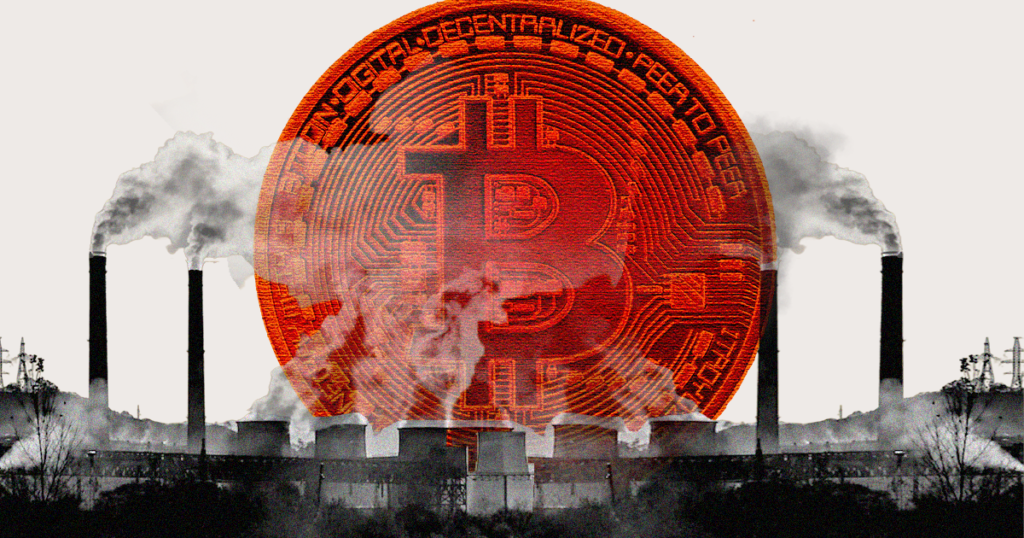
In recent years, Bitcoin has surged in popularity as a revolutionary financial tool and investment opportunity. However, its environmental impact has become a significant point of contention. While Bitcoin’s decentralized nature and potential for financial inclusion are lauded, its energy consumption and carbon footprint raise serious concerns. This article delves into why Bitcoin is considered bad for the environment and explores potential solutions and alternatives.
The Energy Consumption of Bitcoin Mining
Bitcoin mining, the process by which new bitcoins are created and transactions are verified, is a highly energy-intensive activity. It relies on a consensus mechanism called Proof of Work (PoW), which requires miners to solve complex mathematical puzzles. The first miner to solve the puzzle gets to add a new block to the blockchain and is rewarded with bitcoins. This process demands vast amounts of computational power, leading to substantial energy consumption.
As of 2024, Bitcoin mining consumes more electricity than some entire countries. For instance, Bitcoin’s annual energy consumption is comparable to that of Argentina. This immense energy demand is primarily due to the competitive nature of mining, where miners continuously upgrade their hardware and invest in energy-efficient technologies to stay ahead.
The Carbon Footprint of Bitcoin

The environmental impact of Bitcoin mining is further exacerbated by its carbon footprint. The majority of Bitcoin mining operations are powered by fossil fuels, especially in regions where electricity is cheap but environmentally damaging. Countries like China, where coal is a significant energy source, have historically been major hubs for Bitcoin mining. Although there has been a shift towards renewable energy sources, the carbon emissions associated with Bitcoin mining remain high.
A study published in the journal Nature Communications highlights that Bitcoin’s carbon footprint is equivalent to that of the entire country of New Zealand. This comparison underscores the scale of Bitcoin’s impact on global carbon emissions. The energy-intensive nature of Bitcoin mining contributes to greenhouse gas emissions, which are a leading cause of climate change.
Environmental Consequences of Energy Consumption
The excessive energy consumption associated with Bitcoin mining has several environmental consequences. The extraction of fossil fuels, used to generate electricity for mining operations, leads to habitat destruction, air and water pollution, and other ecological damages. Additionally, the significant amount of energy required for mining operations often strains local power grids, leading to blackouts and other disruptions.
Moreover, the heat generated by mining hardware can contribute to the urban heat island effect, where cities become significantly warmer than their rural surroundings. This can exacerbate heatwaves and increase the demand for air conditioning, further straining energy resources and contributing to environmental degradation.
Efforts to Mitigate Bitcoin’s Environmental Impact

In response to growing concerns about Bitcoin’s environmental impact, various initiatives and proposals aim to reduce its carbon footprint. Some of these efforts include:
- Transition to Renewable Energy: A shift towards renewable energy sources, such as solar and wind power, is crucial for reducing Bitcoin mining’s environmental impact. Several mining operations are already exploring or implementing renewable energy solutions to power their activities.
- Improving Energy Efficiency: Advances in mining hardware and technology can lead to more energy-efficient mining processes. By investing in cutting-edge hardware and optimizing mining operations, the energy consumption per bitcoin mined can be reduced.
- Alternative Consensus Mechanisms: Bitcoin’s reliance on Proof of Work is a significant factor in its high energy consumption. Exploring and adopting alternative consensus mechanisms, such as Proof of Stake (PoS), could reduce the energy required for mining. PoS relies on validators who are chosen based on the number of coins they hold and are willing to “stake,” rather than on solving computational puzzles.
- Carbon Offsetting: Some Bitcoin mining companies are investing in carbon offset programs to compensate for their emissions. These programs fund projects that reduce greenhouse gas emissions, such as reforestation and renewable energy initiatives.
Bitcoin’s environmental impact is a pressing issue that cannot be ignored. The energy-intensive nature of mining, coupled with the high carbon footprint, poses significant challenges to sustainability. While efforts are underway to mitigate these impacts, the path to a more environmentally friendly Bitcoin involves a multifaceted approach, including transitioning to renewable energy, improving energy efficiency, exploring alternative consensus mechanisms, and investing in carbon offset programs.
As Bitcoin continues to evolve, it is crucial for stakeholders, including miners, investors, and policymakers, to prioritize environmental sustainability. By addressing these challenges head-on, it is possible to balance the benefits of Bitcoin with the need to protect our planet for future generations.